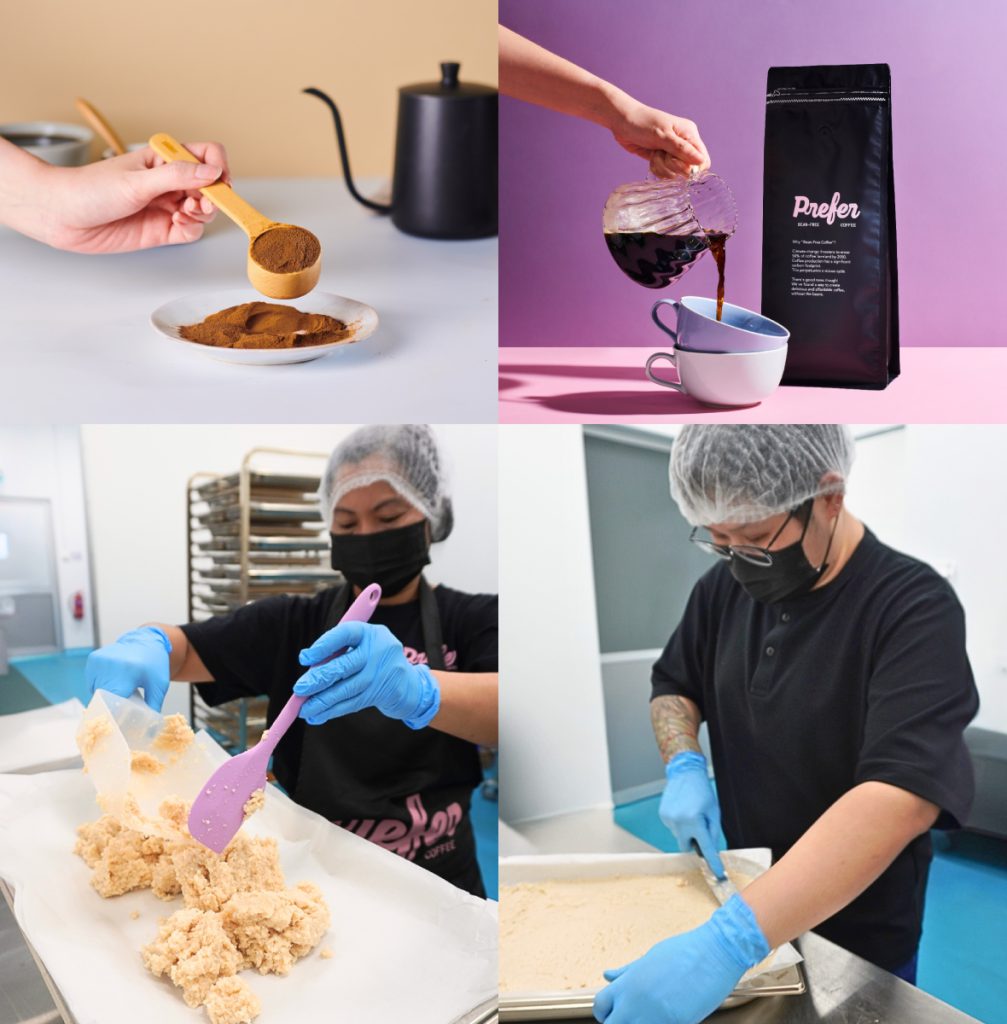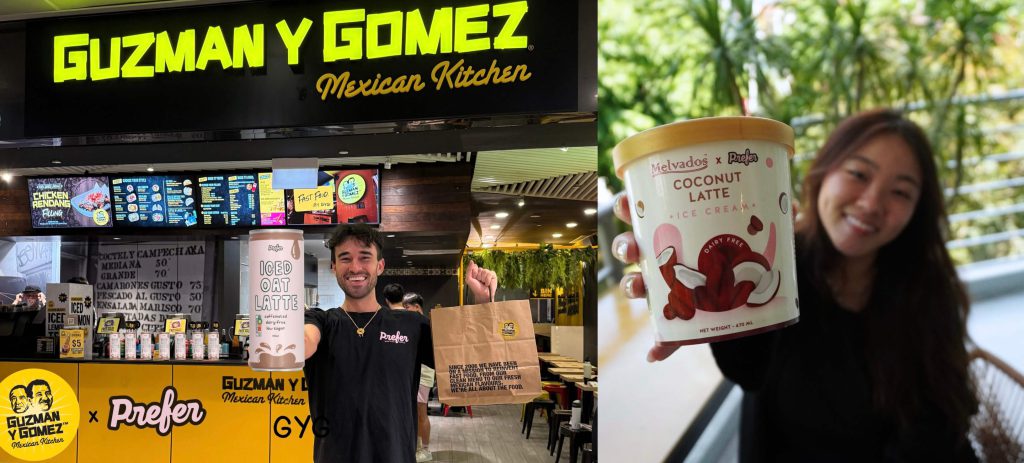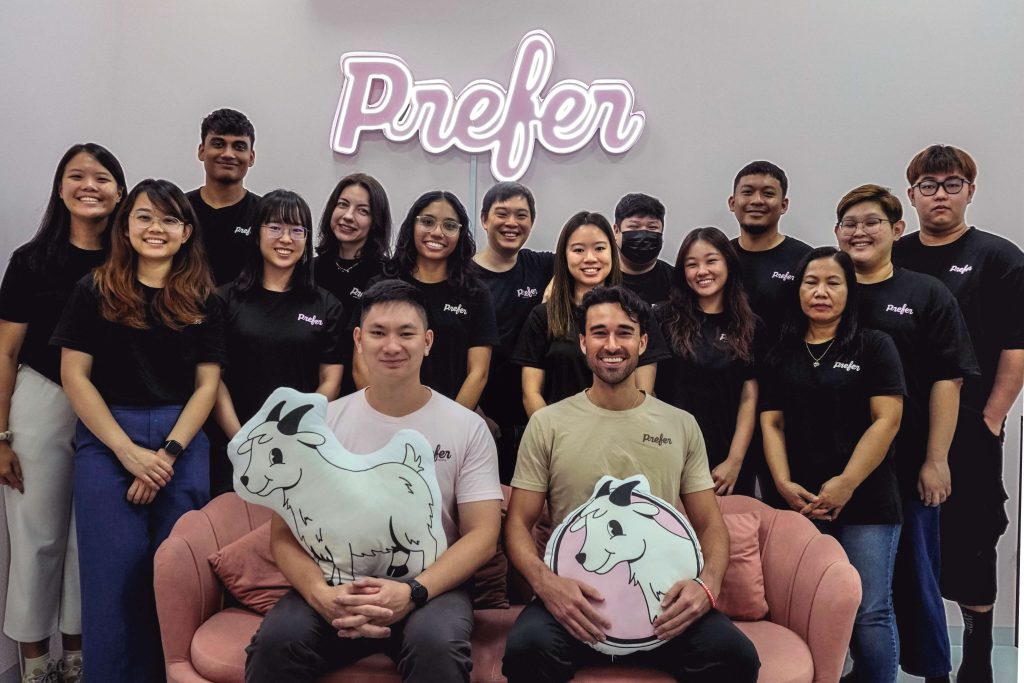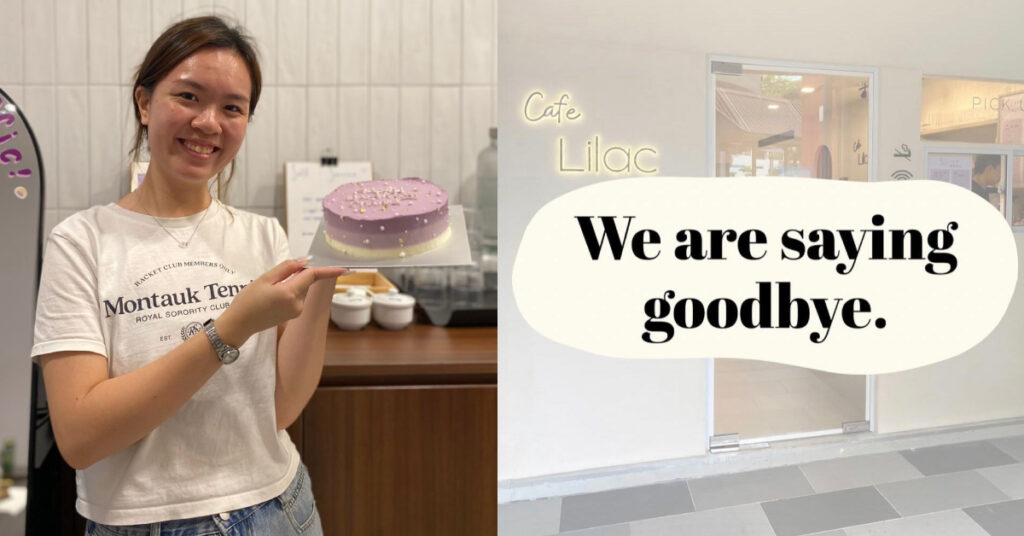Prefer secures US$4.2million in oversubscribed pre-series A funding round, eyes oversees expansions
Coffee without coffee beans? It sounds like a ridiculous idea at first, but Jake Berber and Ding Jie Tan, founders of Prefer, managed to make it a reality.
Just this Aug, the duo announced they had successfully raised US$4.2 million in an oversubscribed pre-series A funding round, and that they will make their first entry into two international markets: Thailand and Australia.
They will be partnering with two global FMCG conglomerates in these territories: Aijinomoto and The Coffee Ferm from Thailand and Australia, respectively. The company will collaborate to create new sustainable coffee innovations in Thailand, while it will license its flavour IP to scale production and distribution in Australia and New Zealand.
“This funding supercharges our mission to prove that fermentation is the key to unlocking the immense biochemical potential hidden within our food system’s byproducts, creating a truly sustainable and resilient way to produce the flavours we love,” shared Ding Jie, who is also Prefer’s CTO.
Vulcan Post first featured Prefer back in Feb 2024, and we caught up with the duo again last month to find out how the past year has been for them and get a sneak peek at potential new plans.
Commercialising & launching new products

First founded in 2022, Prefer became known for its “bean-free” coffee substitutes, created by fermenting excess bread, soy pulp, and spent grain that aim to replicate the taste, aroma and brewing experience of traditional coffee.
Traditionally, fermentation is used to increase the shelf life of perishable food items, which results in changes in taste and enhanced nutritional content. According to Ding Jie, who is also the company’s CTO, the firm leverages this conventional process to create innovative and sustainable food products for the future.
The duo has come a long way since we first spoke to them last Feb, when they started making ground and ready-to-drink coffee.
Prefer first expanded its product range this Apr, when it officially launched canned coffee and teamed up with Le Tech Vending, a vending machine vendor with SMRT Corporation, to distribute its products at eight MRT stations across Singapore, including Dhoby Ghaut Xchange and Woodlands, just three months later.
Recently, the company has also introduced two new products: a soluble bean-free coffee powder and a cocoa-free cocoa powder.

As coffee and cocoa costs soared and supply chains wavered, its B2B partners pushed the company to create more versatile formats similar to instant mixers. These “coffee” and “cocoa” powders can now serve as extenders that can be added to original coffee and cocoa-based drinks.
“This allows brands to stretch supply, reduce costs, and lower emissions,” added Jake, who is also Prefer’s CEO.
Like a science experiment, they conducted multiple rounds of tests and combinations of substrates and microbes to create the closest match to the original coffee and cocoa powders. This process took 12 months for each product to become commercially viable, and scaling up their production has been challenging.
“We had to get scrappy and improvise along the way!” exclaimed Ding Jie.
Over the past year, Prefer has also worked on expanding its reach through its partnerships in Singapore.
In particular, the company has sold its bottled and canned coffee products at restaurants and gyms such as Anytime Fitness, Guzman y Gomez, as well as collaborated with other F&B businesses like Kind Kones and Melvados to create new food products.

However, securing these partnerships hasn’t been easy.
For instance, Jake wrote on LinkedIn that he personally visited The Fullerton Hotel’s front desk to request the F&B director’s contact information in hopes of stocking their products, waited in the lobby until staff provided him with a name and a business card, and then followed up persistently.
After multiple unsuccessful emails and calls, they finally scored a meeting—only to get rejected. The hotel liked the coffee, but rejected it because the beverage came in plastic bottles. Undeterred, Jake and his team reformulated the product into cans and prepared to re-engage, but the hotel’s F&B lead left, and they had to start outreach from scratch.
In the end, their persistence paid off and Prefer got to stock their products at The Fullerton in Jul 2025.
While it seems that Prefer relies on its retail sales for growth, Jake has clarified that the bulk of the company’s revenue derives from its B2B operations. By targeting the larger food supply chains of FMCG partners, Prefer is often able to derive larger cost savings and make a bigger climate impact.
This focus ties back to Prefer’s core mission: to offer a sustainable, affordable alternative to harvested coffee—one of the crops most vulnerable to climate change.
With a solid ground in Singapore, Prefer is ready to expand into international markets in APAC

With solid ground in Singapore, Prefer has set its sights on building more innovative substitutes and expanding into international markets in the Asia Pacific region, and with the new funds secured, they are just one step closer to greater mainstream growth.
In preparation for its first international launches and partnerships, Jake and Ding Jie shared that Prefer will scale up its production of coffee and cocoa substitutes to meet demand.
Beyond these two countries, Prefer will double down on Asian markets, with Jake noting the mass market demand for coffee and cocoa is vast and growing. Having said that, he also shared that the company has been receiving inbound interest from the US and the EU and has engaged in early discussions there.
Ding Jie also expressed his ambition to build up their capabilities in fermentation and flavour creation to support their long-term goal of expanding their portfolio beyond coffee and cocoa. While they have kept specifics under wraps, the duo has teased potential launches of their cocoa-free chocolate.
What started as an ambitious project out of the founders’ love for the earth turned into a full-fledged business that has gained the approval of customers and businesses alike.
Prefer might not replace coffee, but they might just make it more enjoyable for more years to come.
Featured Image Credit: Prefer










